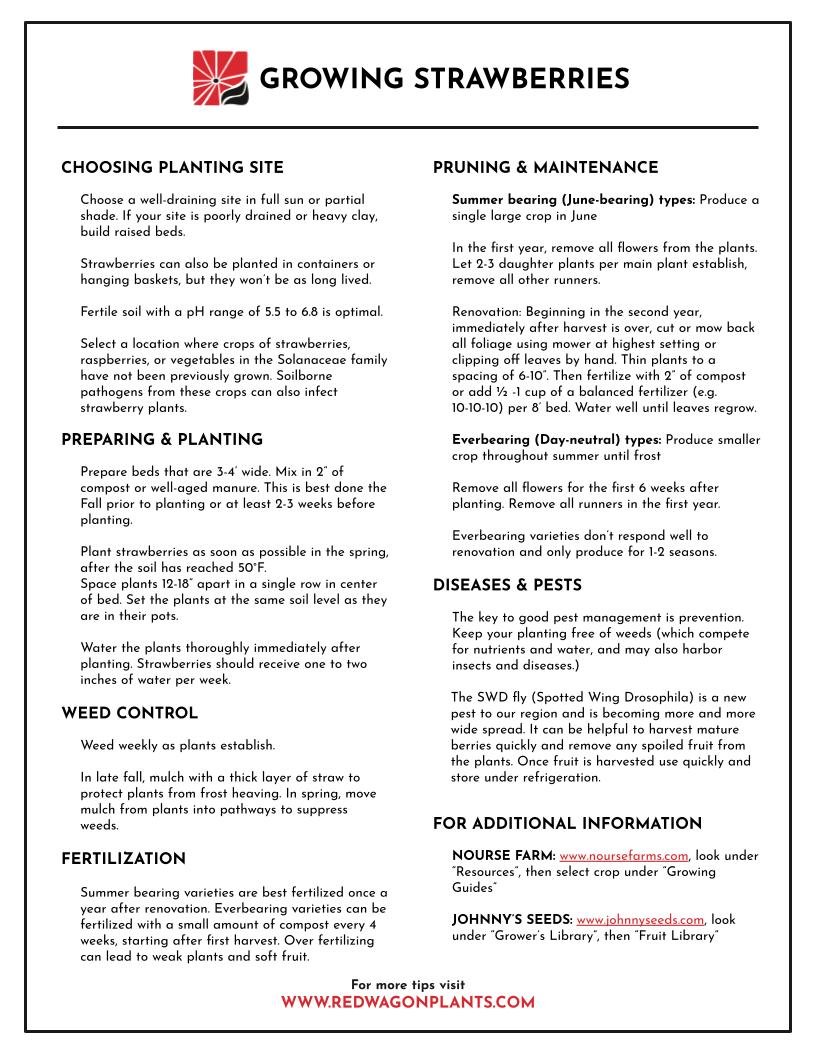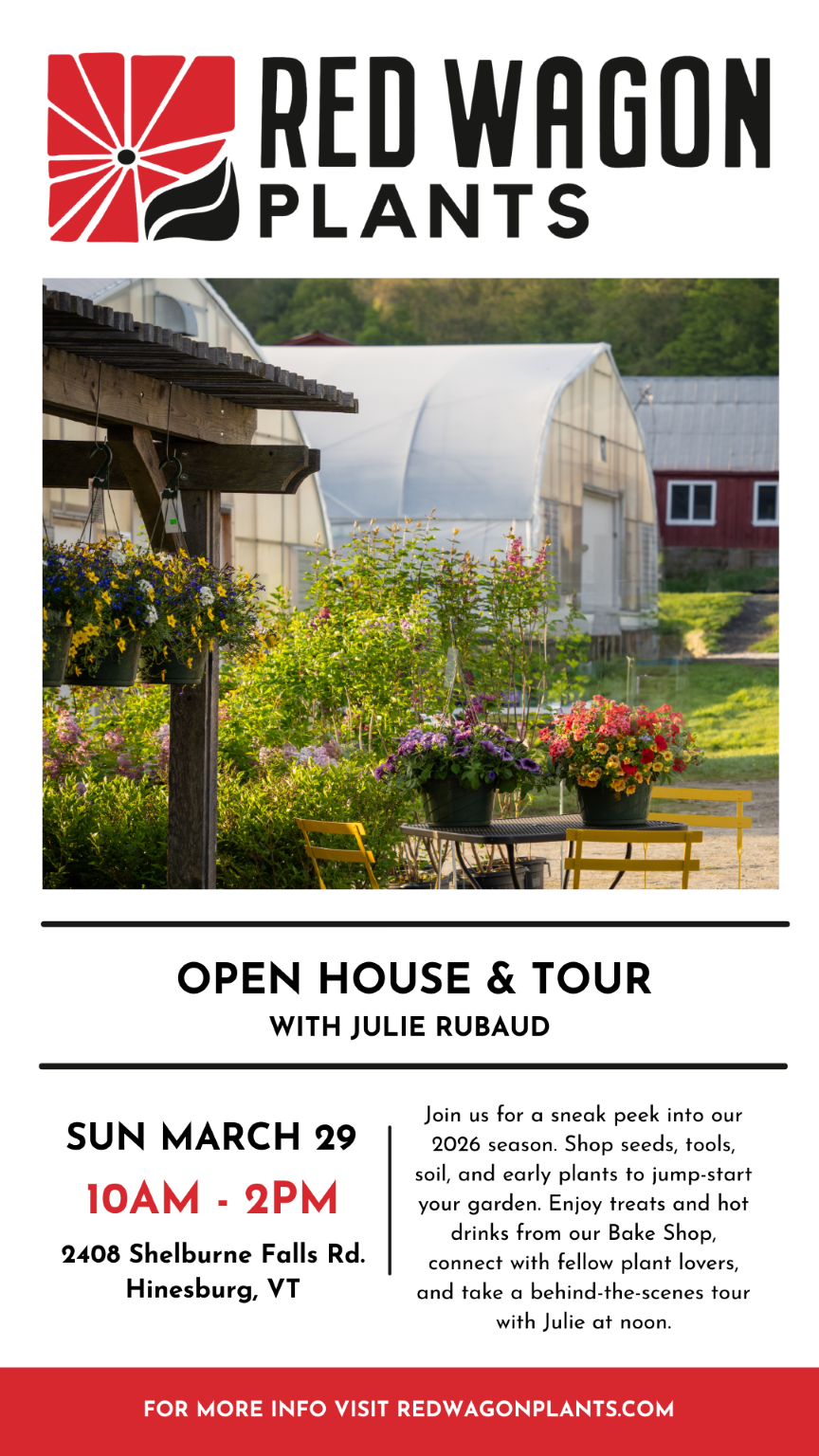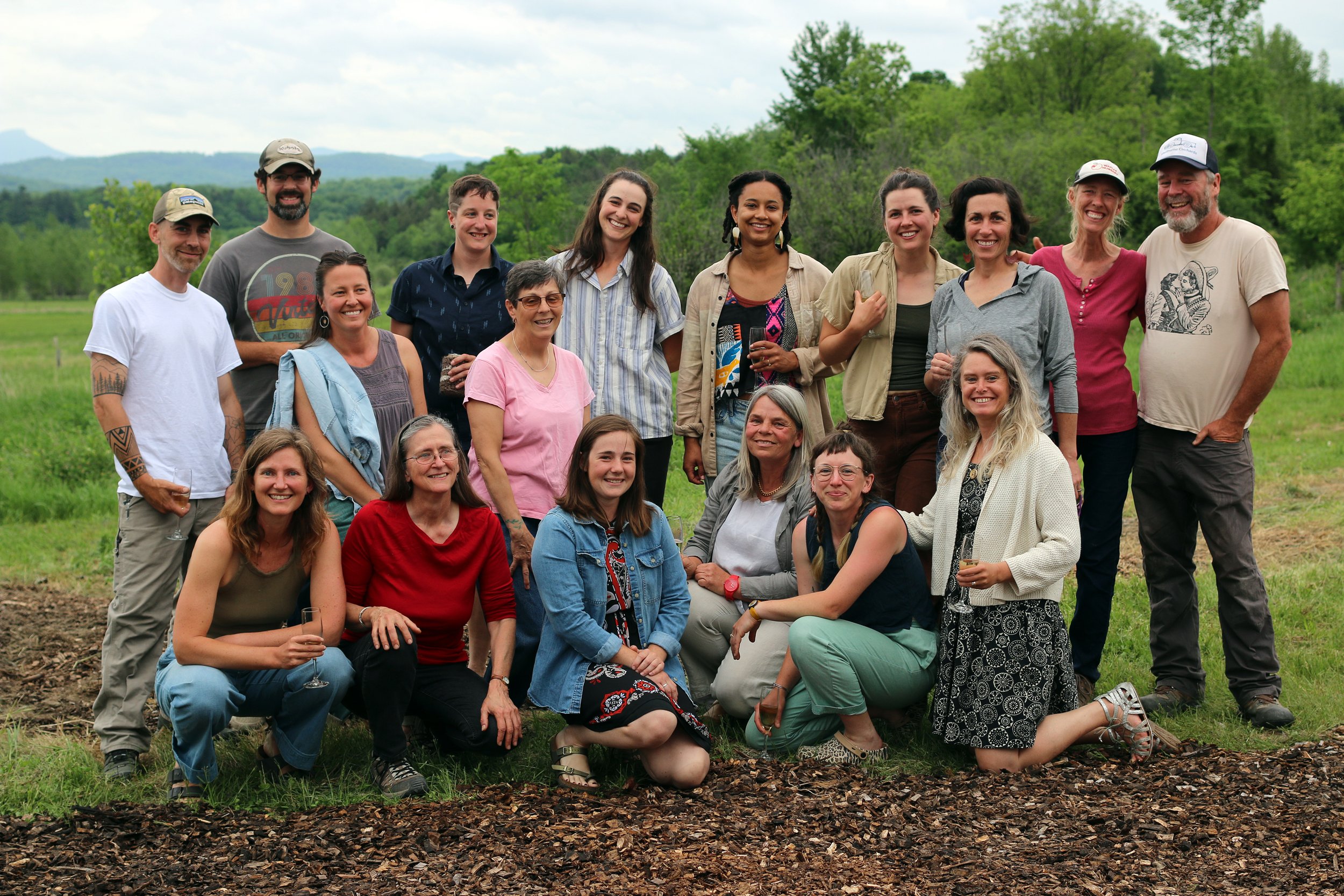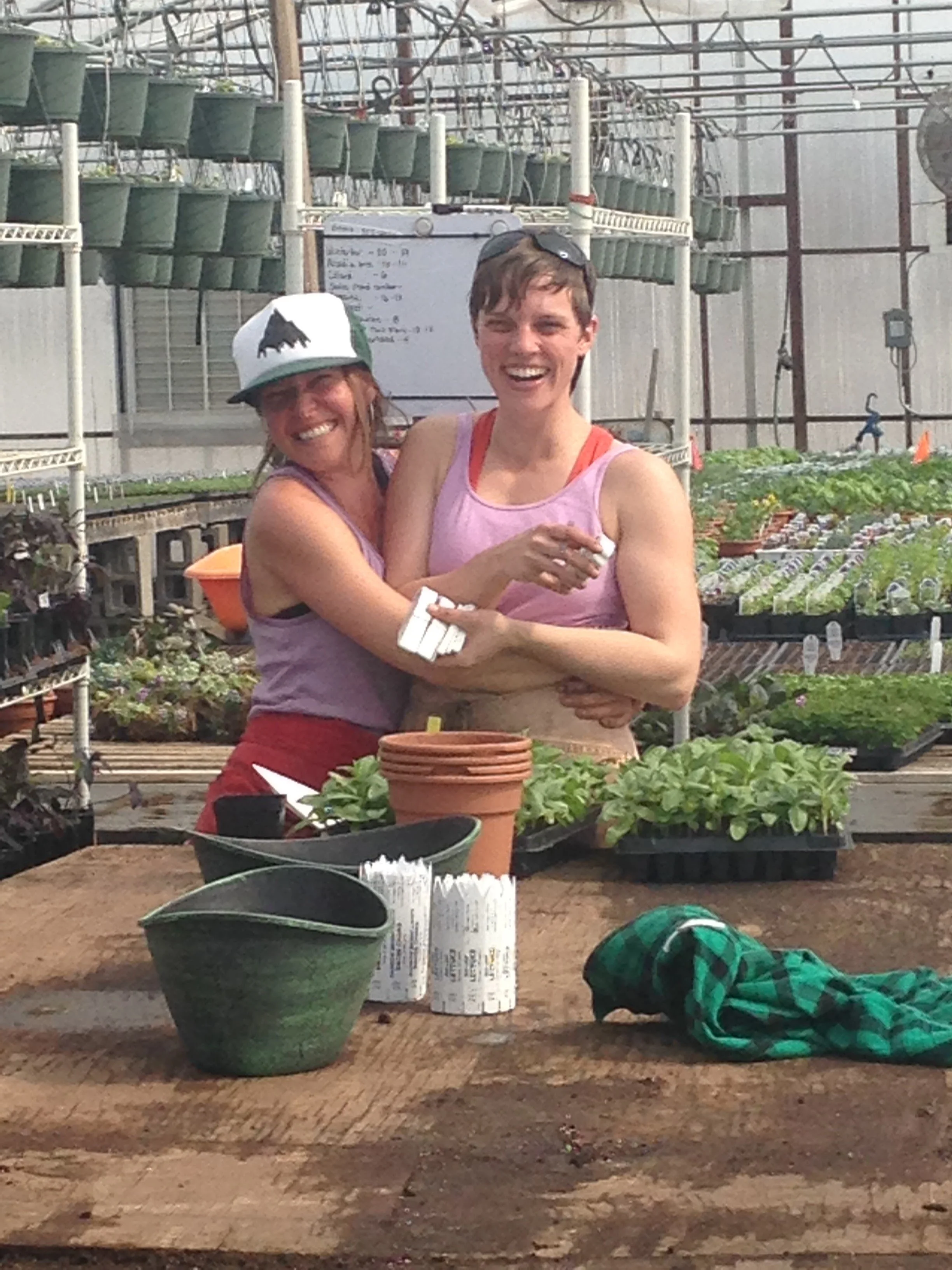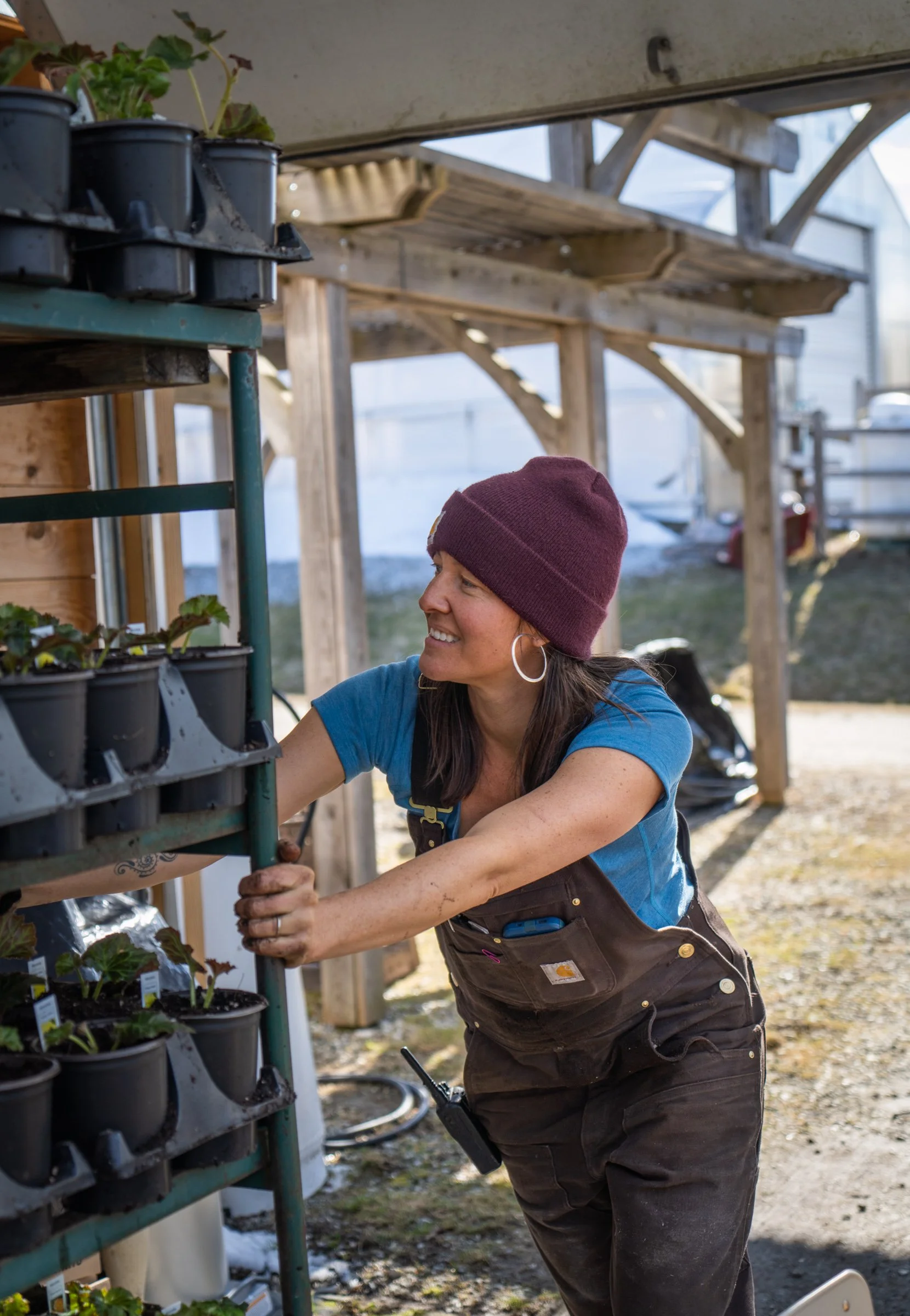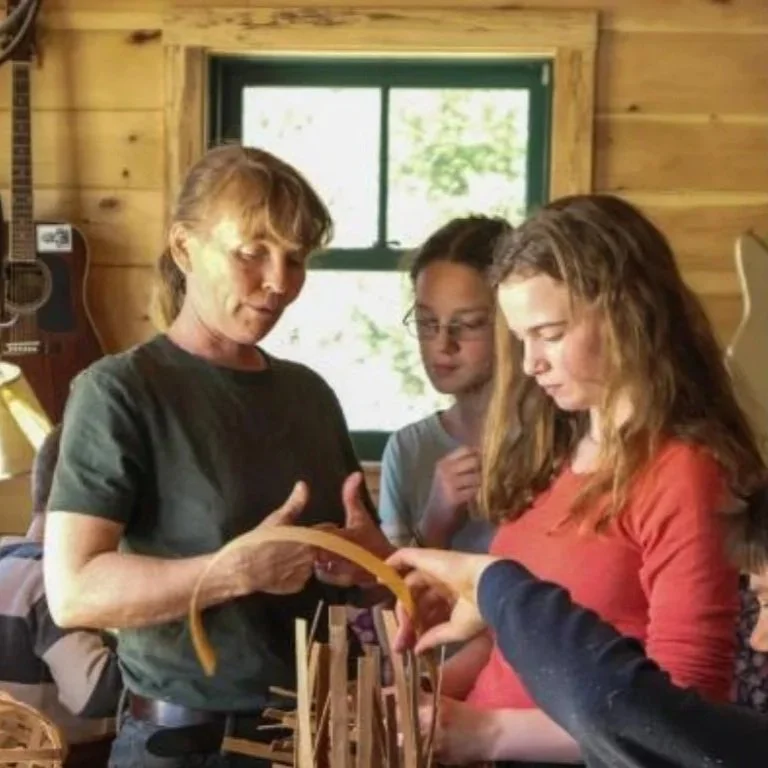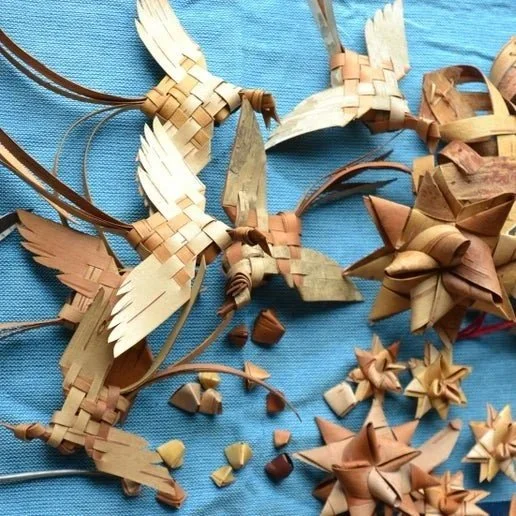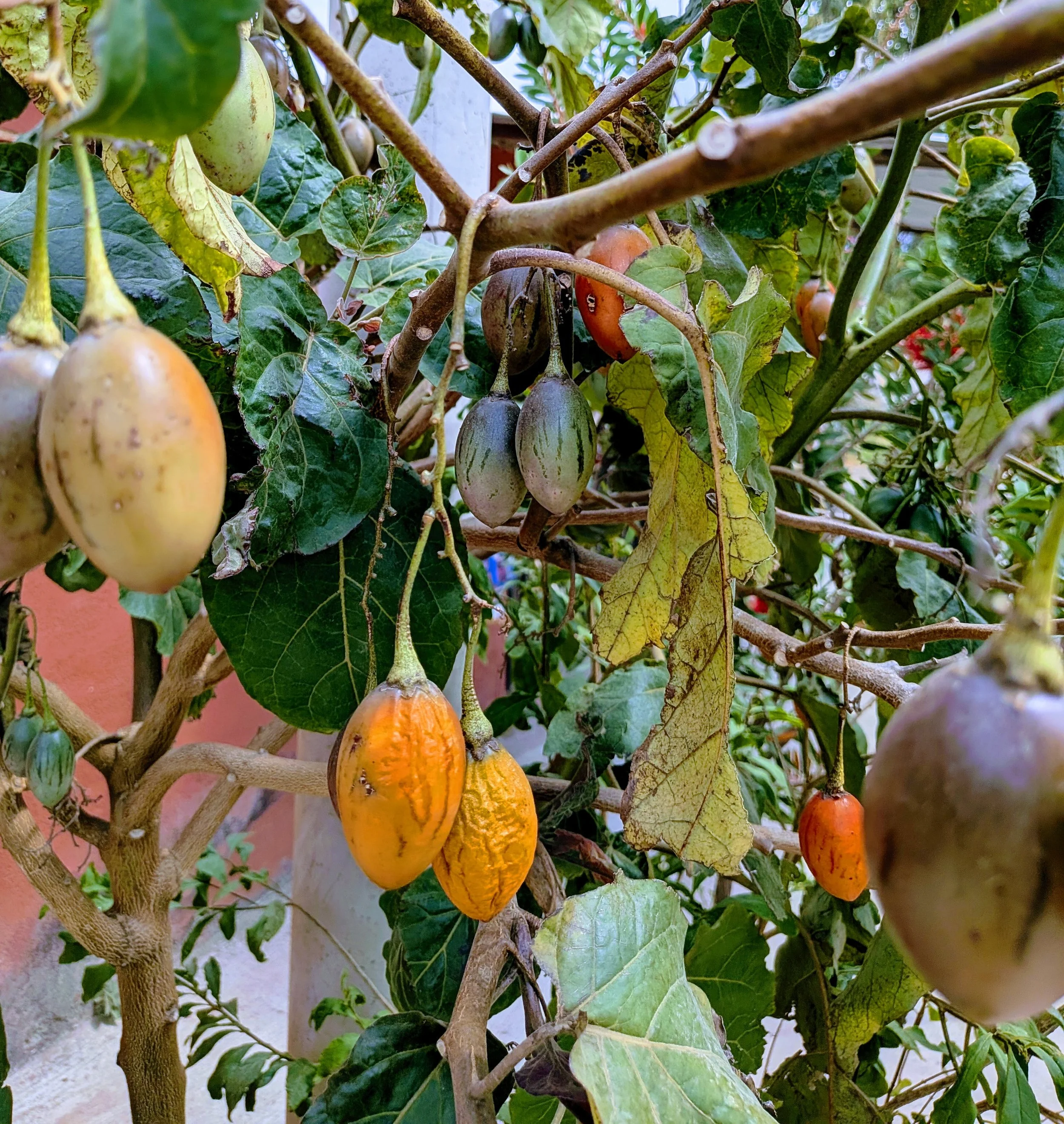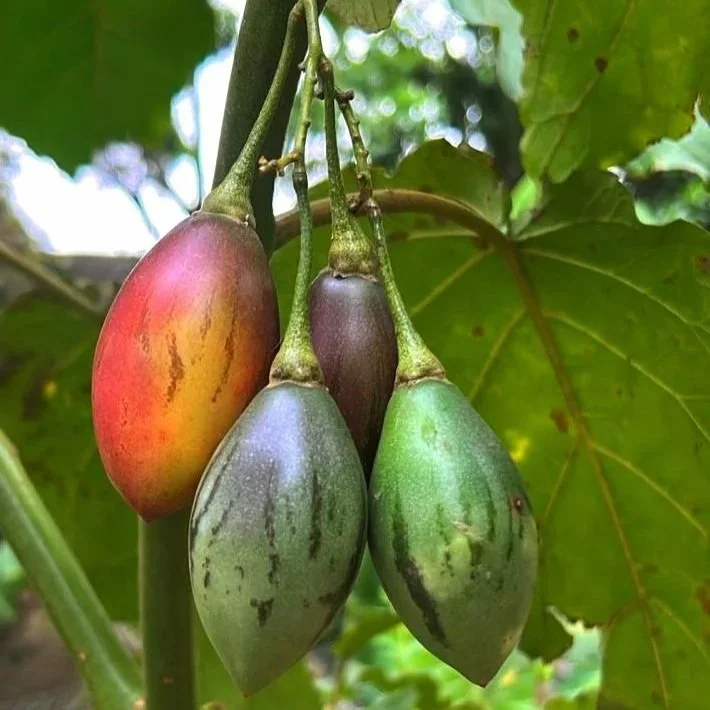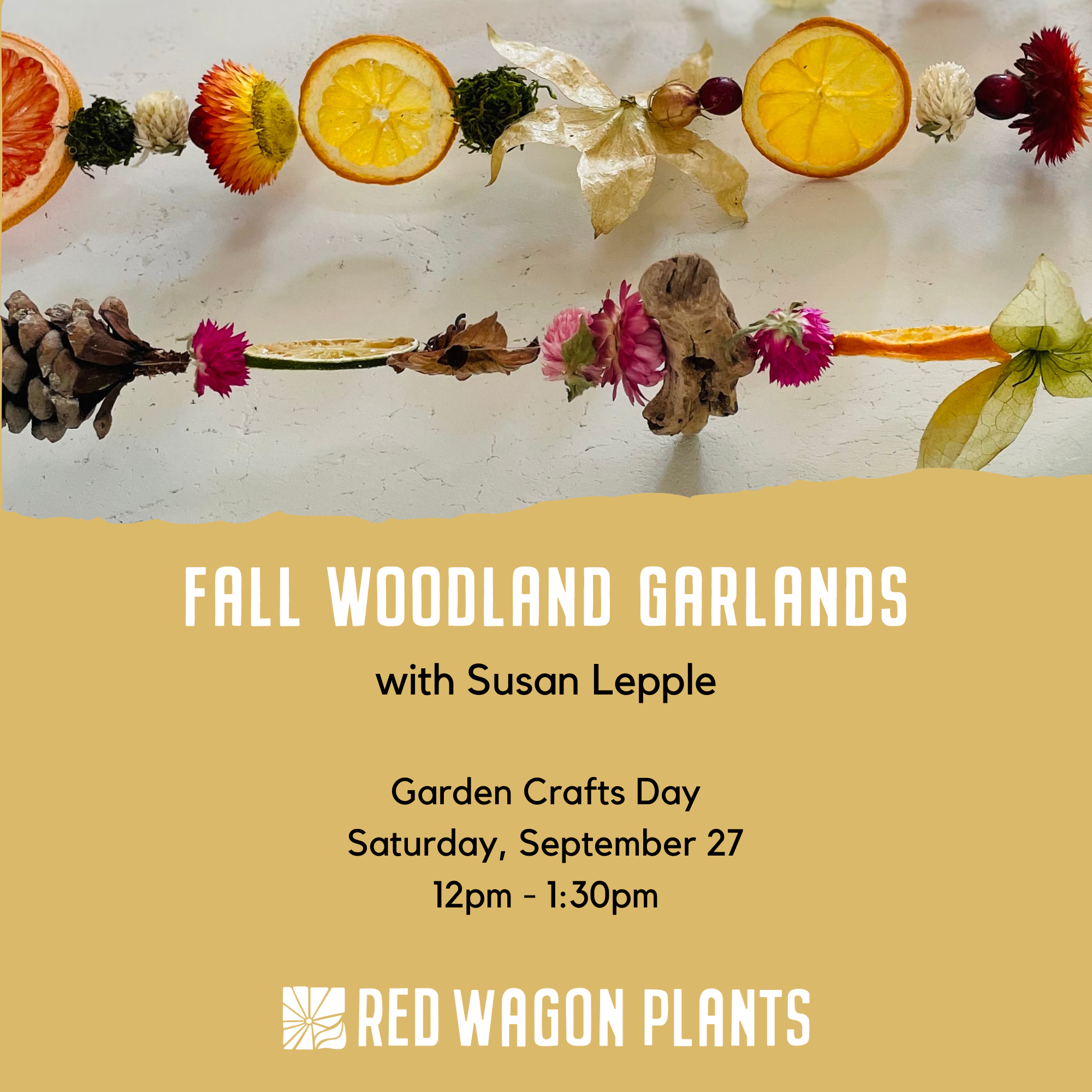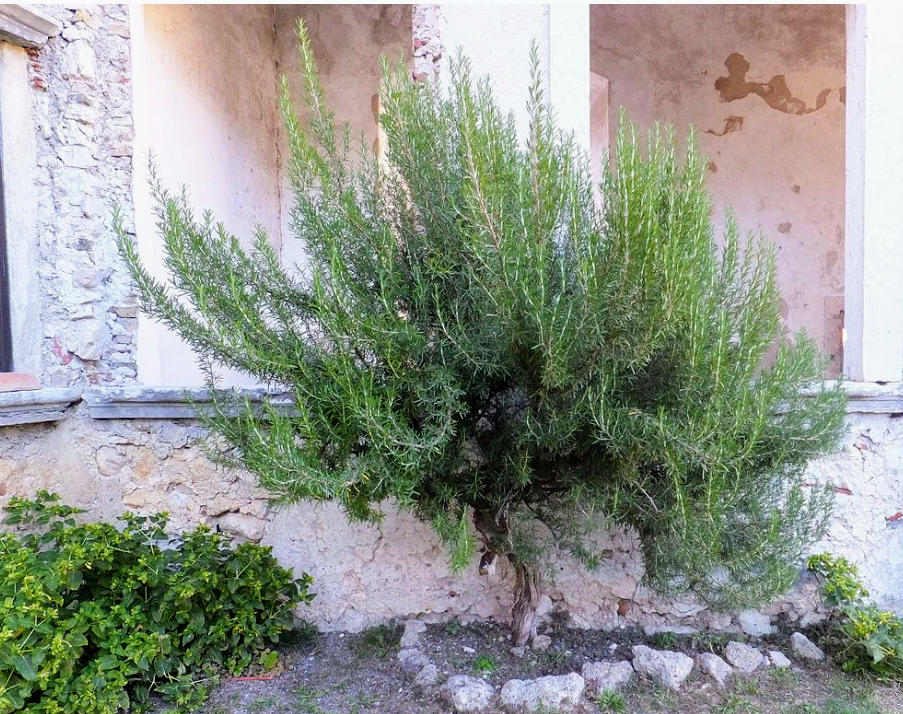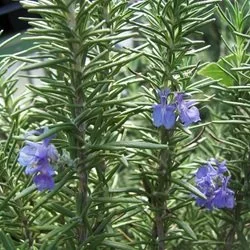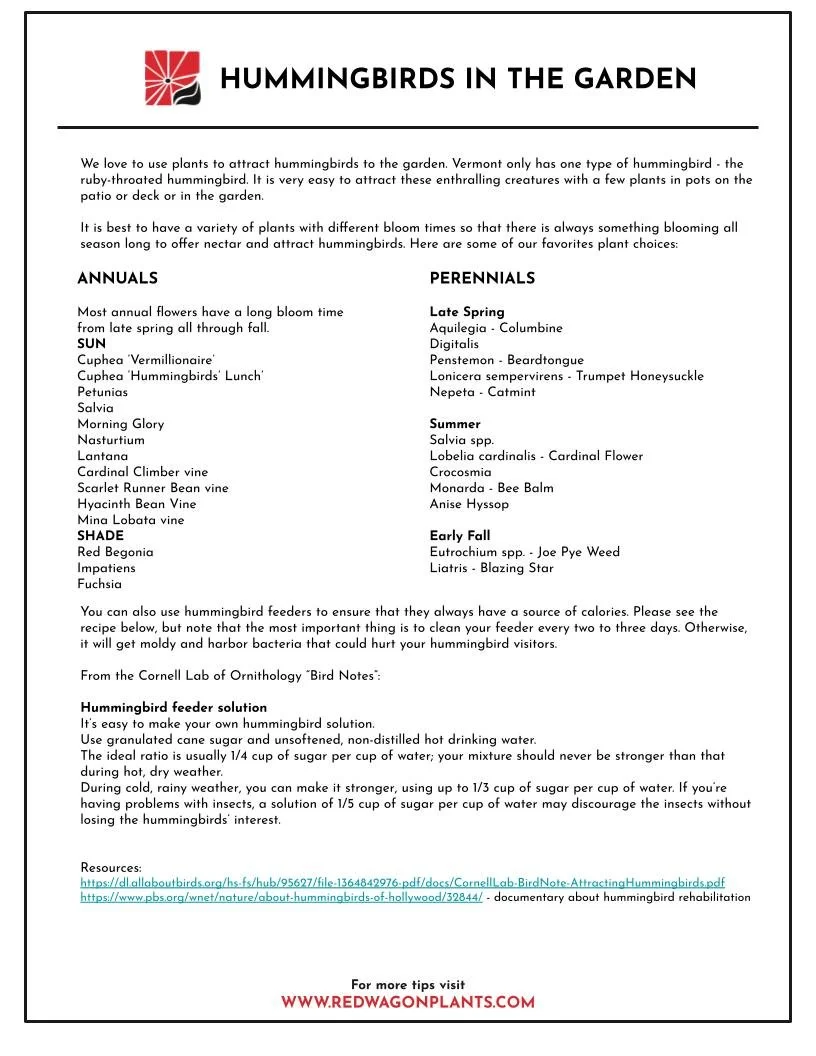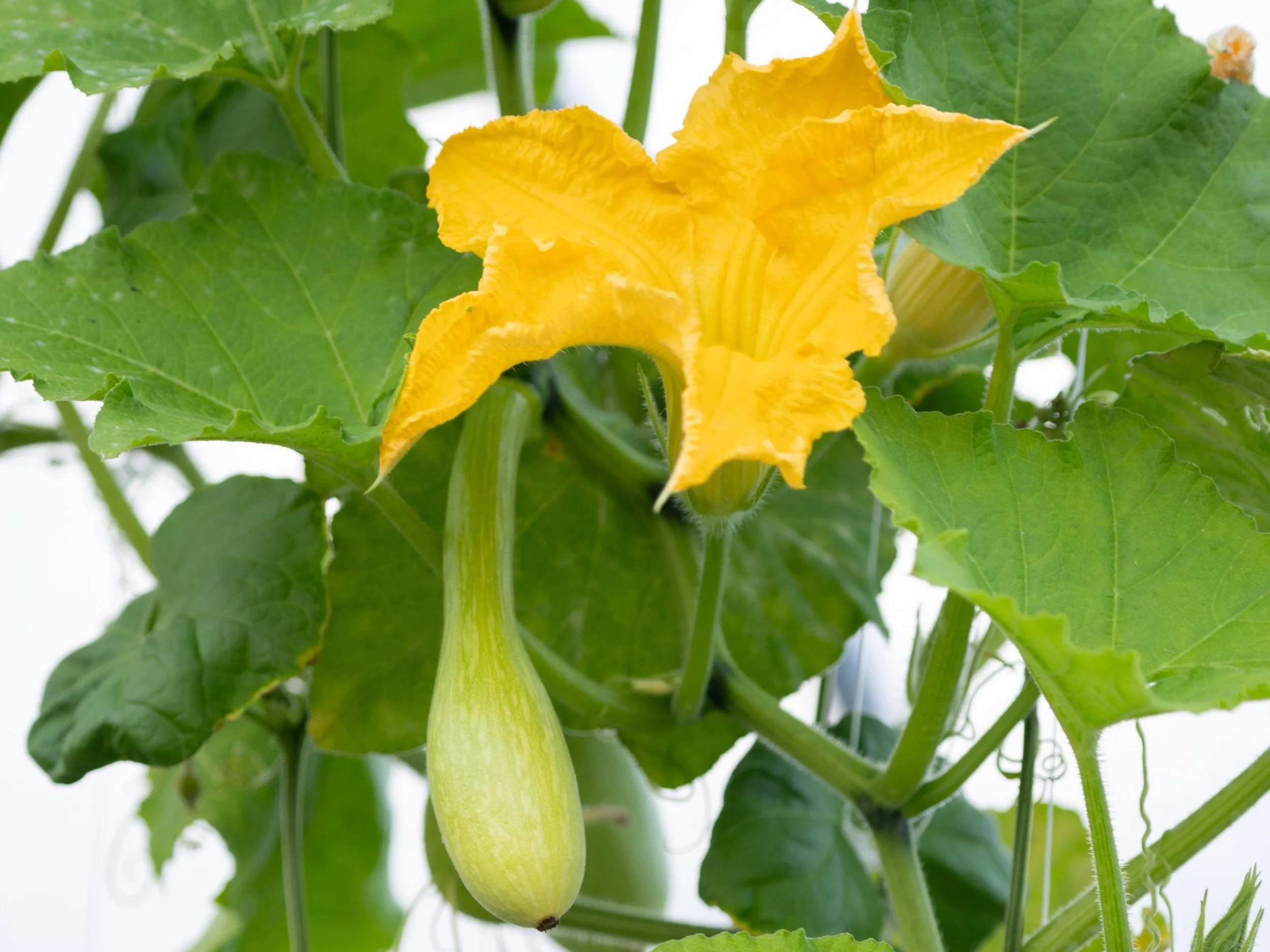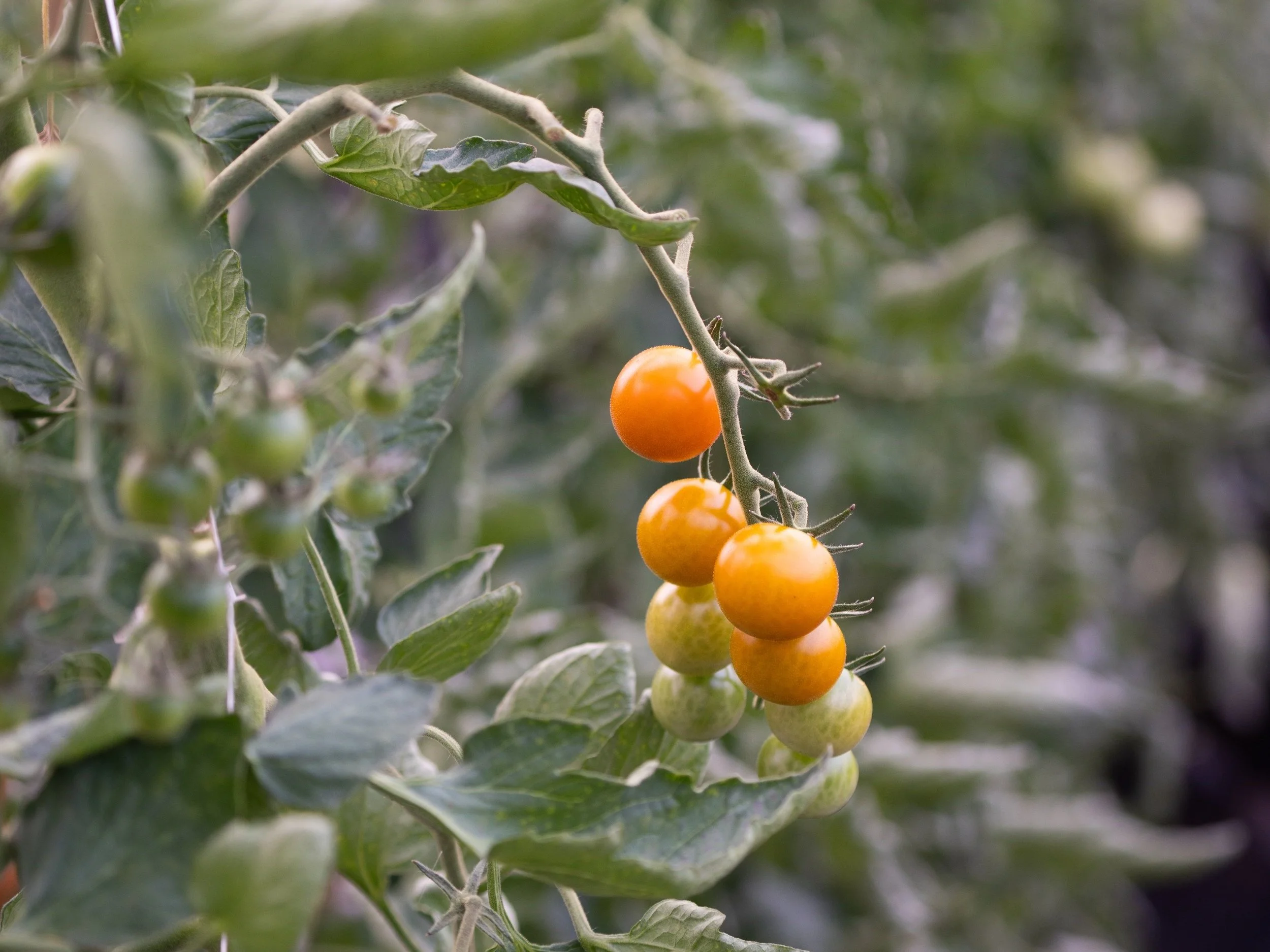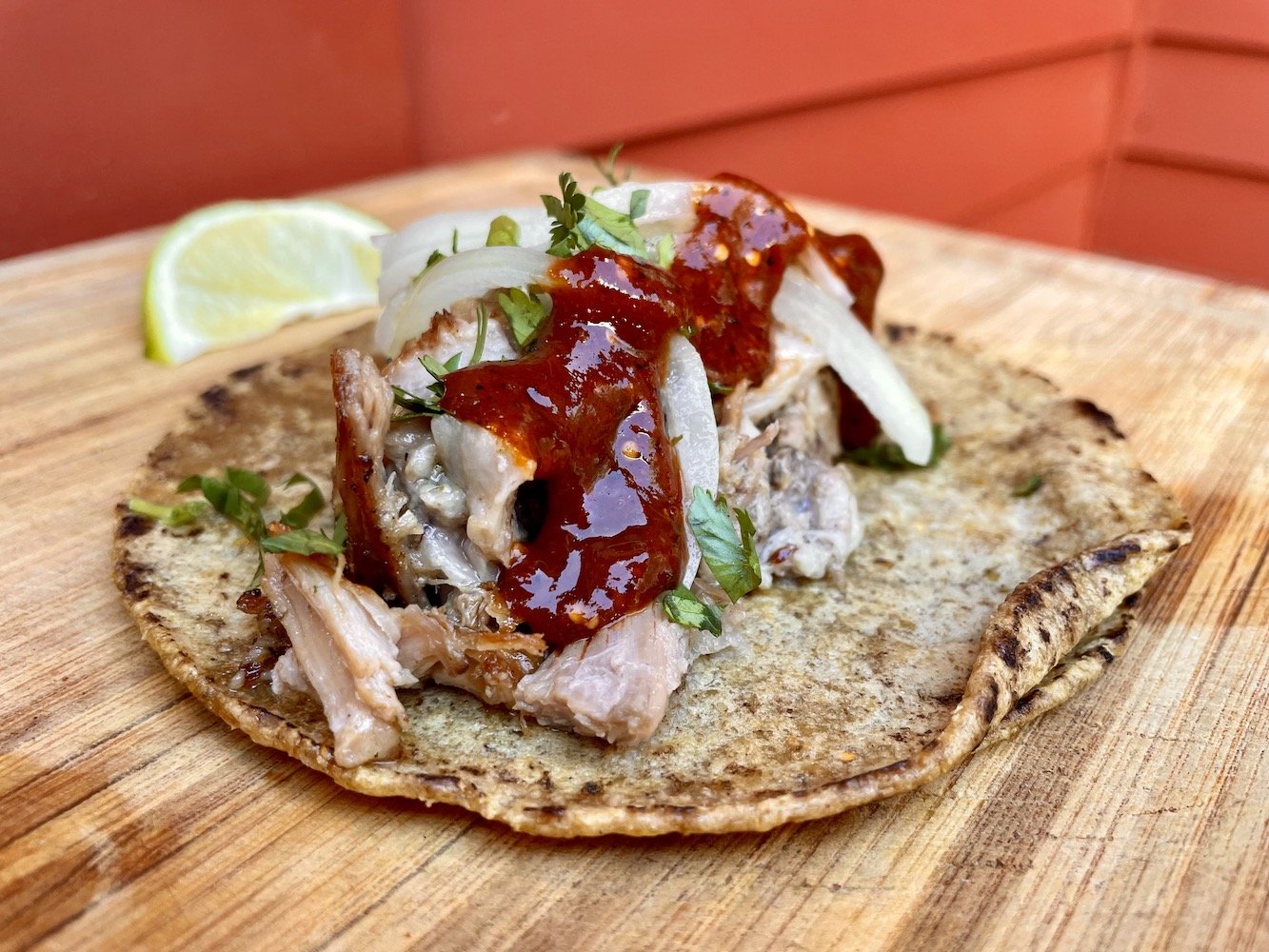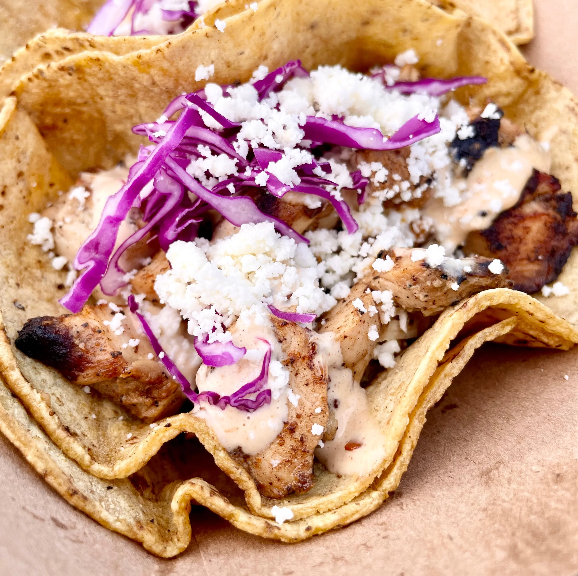WE WILL SEE YOU AT OUR OPEN HOUSE!
We are hiring for the 2026 season
Applications are open for the following positions. We will start interviews in January for the production team positions and in February for the retail and wholesale team positions. Please get in touch if you have any questions! We love meeting new people who want to work with plants.
We are hiring for the 2026 season!
Red Wagon Plants is known for high-quality, organic plants, an efficient, system-based workflow, and stellar customer service. We have a fun work atmosphere with fellow plant lovers, a beautiful work environment, free plants for our own gardens, and a paid lunch break. Our season is early, short, and builds to a very fast pace before slowing down for the summer months.
Our BAKE SHOP team is looking for someone to work our counter and help with prep work in the kitchen. The ideal candidate is available full time, starting in early April and able to work weekends. We are hoping to find someone who is warm and welcoming, and can pay attention to all the details required to keep the Bake Shop running smoothly. The hours are 7:30 to 4:30, Thursday through Monday. If necessary, we can consider a job share and split the position between 2 people. Please get in touch if this is for you and please help us spread the word. Please email info@redwagonplants.com if you would like to work in our Bake Shop.
Our RETAIL CREW is the face of the operation and is made up of people who are knowledgeable, courteous, and confident. When not helping customers, retail staff are moving plants and restocking, keeping displays fresh and beautiful with an eye for color, texture and form, and keeping the greenhouses clean and tidy throughout the day. Members of the retail crew pride themselves in having an excellent memory to recognize regular customers, remember plant names and to know where plants are located.
Our PRODUCTION CREW is the heartbeat of Red Wagon. They are the people who seed, plant and water everything we grow. Like a well oiled machine, the production team works around the table, seeding and potting up plants. Members of the production team pride themselves in both speed and accuracy as well as the ability to participate in established systems. The quality of Red Wagon’s plants starts in our production team’s hands.
Our WHOLESALE CREW brings our plants out to stores all over Chittenden county and beyond. The wholesale team is fast on their feet, picking orders, loading and unloading trucks and restocking displays at local grocery and hardware stores. They represent Red Wagon Plants out in the world and receive lots of accolades for the nice plants being delivered.
Our commitment to all Red Wagon Plants employees
We strive for a great workplace, with lots of support and feedback from team leads.
RWP employees are what make Red Wagon the amazing place it is. Our customers notice this, and we delight in sharing their feedback with all team members.
Red Wagon Plants rewards all employee’s hard work with appropriate wages, a paid 30-min lunch break (occasionally a homemade or catered lunch, too), lots of free plants for their own gardens & a staff discount on all purchases. Year round employees receive additional benefits.
Our expectations from all Red Wagon Plants team members
Reliability, cooperation and timeliness
The willingness to listen carefully, ask questions and follow instructions precisely
A desire to improve, an engaged level of communication and an ability to learn from mistakes
What is a typical day like at Red Wagon Plants?
In RETAIL, opening shifts start 30 minutes before we open for the day. We use a daily log to keep everyone up to date with changing tasks and announcements. The main focus is on helping customers, answering their gardening questions, and using our POS to ring up purchases. Other tasks include watering plants, sweeping, fronting and restocking plants to keep displays attractive at all times. Depending on the day of the week and the time of year, we may be working alone in the retail greenhouses or with several team members. The closing shift ends about 30 minutes after closing and includes shutting the greenhouses, tidying up shopping carts and closing out the registers for the day. Retail shifts are staggered and each team member takes a 30 minute break about half way through their shift.
In PRODUCTION workdays typically start at 8 am, sometimes earlier in the heat of summer or for early watering shifts. The production lead sets the team up with the projects for the day. Most often this involves building trays and running them through the soil filling machine, loading the trays onto our work table where we plant plant plugs into the pots, tag them, and load them onto carts to bring them to their greenhouses to grow. Speed, strength and precision are key. The work day typically ends at 4 pm, after cleaning up the work space and getting set up for the next day. The production team typically takes their 30 minute lunch break together around noon.
In WHOLESALE a typical day starts at 8 am and involves picking orders onto racks and trailers and loading them onto trucks or vans. This involves a lot of lifting, bending and carrying heavy trays of plants. A big part of the day is then spent driving to grocery stores and hardware stores where the displays are tidied up and restocked. Most days end at 4 pm, but during peak season when orders are big, the wholesale jobs might finish up later. The wholesale team is flexible with the timing of their lunch break and might take it on the road.
Open positions
Retail Team Member - Full Time
We're looking for someone to join our retail team in a full time capacity and work closely with our retail manager. This person will be responsible for managing our plant inventory. This means restocking plants from the production greenhouses into the retail greenhouse, creating and maintaining beautiful and inspiring displays, and keeping the spaces tidy and clean. We are looking for someone who understands the importance of visual merchandising for selling products, in this case, plants. This position also requires stellar customer service skills and the ability to work as a reliable team member. Working in retail at Red Wagon Plants is a dynamic balance of physical labor and customer service with very little uninterrupted time. This position has the potential to grow into a year round role, with full time hours 8 months of the year and part time hours 4 months of the year. The year round role would include managing the retail team members and behind the scenes seasonal work.
Requirements
A gardener and plant lover
A growing interest in perennials, annuals, container gardening, and vegetable gardening
Confidence to give advice to beginner and more experienced gardeners
Active and physically fit. A love for working outdoors and in greenhouses in all weather and the ability to lift heavy plants repeatedly
Enjoy working in a team
Ability to keep one’s calm in a busy and crowded retail setting
Ability to take directions easily, work independently as needed, and have a sense of responsibility
Experience working in a fast paced retail setting
Experience with merchandising products
Ability to keep a steady pace and follow through on tasks
When
Seasonal Position, early April to end of September (potential to grow into a year round position)
Full time, 5 days a week. Closing shift preferred 10:30-6:30. Must be available for at least one weekend shift per week.
Starting pay $20-$24 per hour depending on experience.
Retail Team Member - Part Time
We are looking for plant lovers to join the retail team in a part time position. This job involves running the register, fielding customer’s gardening questions as well as fronting and restocking plants. We are looking for folks who are alert to their surroundings and are able to effortlessly switch between different tasks like restocking and helping multiple customers. Engaging with Red Wagon’s customers is a very rewarding job and well suited for someone with an outgoing personality.
Requirements
A gardener and plant lover
A growing interest in perennials, annuals, container gardening, and vegetable gardening
Confidence to give advice to beginner and more experienced gardeners
Active and physically fit. A love for working outdoors and in greenhouses in all weather and the ability to lift heavy trays of plants repeatedly
Enjoy working in a team
Ability to keep one’s calm in a busy and crowded retail setting
Ability to take directions easily, work independently as needed, and have a sense of responsibility
When
Seasonal Position, mid April to July/August - end date varies case by case.
The daily schedule varies. We’re looking for both opening shifts, beginning at 7:30 am and closing shifts, ending at 6:30 pm. Shifts are typically 6-8 hours long with a 30 min paid break.
3 to 4 days a week, and must be available for at least 1 weekend shift per week.
Starting pay $20-$22 per hour depending on experience.
Production Team Member
updated 1/23/26 - POSITION FILLED
We are looking for a few new members to join the production team in a full time and part time capacity. The production team is responsible for seeding, potting up and transplanting all plants. This job is very repetitive and physical. We are looking for folks who are detail oriented even at a fast pace and are able to pick up systems quickly. All production staffers need to work well in a team and be ready to switch tasks and jump in to assist other teammates as needed to keep the operation running smoothly. Bonus: In production, employees get to interact with baby plants all day long and the production manager makes awesome playlists.
Requirements
A plant lover
Active and physically fit. A love for working outdoors and in greenhouses in all weather and the ability to lift heavy plants repeatedly
Great dexterity
Reliability, friendliness and kindness
Enjoy working in a team.
Ability to keep one’s calm even with an enormous to do list
Ability to work independently and have a sense of responsibility
When
Seasonal, beginning mid- March or mid-April through the end of May.
Full time and part time positions are available.
3 to 5 days a week, flexible with what days of the week. In April and May one weekend day per week is required. Work hours are 8:00 am - 4:00 pm usually.
Starting pay $20-$22 per hour depending on experience.
Wholesale Team Member
updated 1/23/26 - POSITION FILLED
This position is perfect for a detail minded person who is able to drive a 16 ft box truck or cargo van (no CDL needed). Having some plant or gardening knowledge is important because our drivers need to identify and find plants across our 12 greenhouses and load them quickly onto trucks.
Requirements
Clean driving record
Plant and gardening experience
Good memory and ability to retain information
Physical stamina
When
Seasonal, from mid-April to mid-June.
This is a full time position, Monday through Friday. Work hours are 8:00 am - 4:00 pm or 7:00 to 3:30. There is occasionally some paid overtime.
Starting wage is $25 per hour or more depending on experience.
Ready To Apply? Please take a minute to fill out this form to get the ball rolling. We cannot wait to hear from you!
WINTER MARKET SNEAK PEEK!
Take a peek at the talented artists and craftspeople you’ll see at our upcoming Winter Market, a cozy afternoon of community, creativity, and holiday cheer.
Sunday, December 7th, from 12pm to 4pm,
2408 Shelburne Falls Road, Hinesburg, Vermont,
Free admission.
This festive market will feature a collection of local artists and makers offering beautiful handmade gifts, providing the perfect opportunity to shop small and support Vermont talent this season. While you browse, you can sip mulled wine, enjoy treats from our Bake Shop, and take in the scent of fresh evergreen wreath-making in action.
You'll also find a selection of Red Wagon's own herb products, gardening tools, merchandise, and gift cards ideal for the gardeners, cooks, and plant lovers on your list.
Spend the afternoon in our warm, heated greenhouse, surrounded by friends, beautiful things, and a little bit of holiday sparkle. We look forward to celebrating the season with you!
BEE HAPPY VERMONT
Pedro Salas and Susan Reit de Salas, of Bee Happy Vermont, will have honey, hand-crafted 100% pure beeswax candles, lip balm, and other honey and beeswax treats from their beehives in the hills of Starksboro, VT and the farmlands of the Champlain Valley.
SUSAN LEPPLE
Susan Lepple will have beautiful rustic garlands to adorn interior spaces. All materials have been grown or collected by Susan, who has an aesthetic appreciation for the elegant wispiness of grasses, the mounding greens of mosses, the complexities and colors of flowers, the texture and form of seed pods and the irregular nature of branches, twigs, and vines.
JANET GRAY FROM EVERYBODY WINS! VERMONT
Janet Gray from the Everybody Wins! literacy program at the Hinesburg Community School will be talking to people about volunteer opportunities and sharing books and stories to keep kiddos entertained in our cozy greenhouse during the winter market.
In Everybody Wins! sites around Vermont, adult volunteer mentors are carefully matched with students at their local elementary schools to read together, have conversations, and make enduring connections weekly over lunch. Their Power Lunch program sets children up to love reading and succeed in life. It supports local schools and communities by connecting community members to their schools. Mentors say that reading day is their favorite day of the week!
ZOE JEWETT SHELDON
Zoe Jewett Sheldon, of Vesper Hill Farm believes in making beautiful things that nourish the land and its wild inhabitants. Through rotational grazing, native plantings, and other practices, she’s re-inhabiting her 200-year-old Vermont farmstead - enhancing habitat for grassland birds and other wildlife while her Lincoln Longwool sheep grow the lustrous fleeces she transforms into yarn, felt pelts, woven goods, and handmade dolls. Every piece she creates is proof that farming can nurture both beauty and biodiversity.
VERMONT QUILT BEE
Hope Johnson of Vermont Quilt Bee will be selling her intricate and kaleidoscopic honey bee-inspired fiber art, made right in Shelburne, Vermont. Hope’s beautiful prints of her wall and larger-sized art quilts portray hives in all seasons and colors of the year and celebrate the mathematical beauty of some of our most important and sweetest pollinators. Hope proudly and gratefully shares her success with the beekeepers whose stewardship and knowledge of the honey bee has allowed her to flourish artistically and raise awareness of the importance of ecosystem health.
COLORS OF NATURE VT
Lynne Gavin, of Colors of Nature VT, is a natural dye resource: an advocate for natural color, teaching classes, and growing dye plants. Lynne sells one of a kind pieces of apparel both upcycled and new, homewares and accessories, each hand dyed and constructed in Richmond, Vermont. Lynne's specialties include botanically printed textiles, indigo shibori to plant dyed cottons, silks, wool and linen
DIG DIG SPOONS
Jennica Stetler of Dig Dig Spoons will have spoons and various other utensils that she has foraged, shaped, carved and finished up the road at her farm in Hinesburg. Dig Dig Spoons are made to cook, serve and eat real food! They are carved from local foraged hardwood Straight grained cherry, birch, poplar, maple and apple and chopped into a spoon with an axe and knives.
PAPER CLAY NATURE
Sharon Fennimore of Paper Clay Nature will have her playful animal and botanical-inspired designs on ceramics, clothing and paper goods. Sharon is an artist, writer, and independent educator based in rural central Vermont.
WOOLFDEN HOMESTEAD
Nora Woolf of Woolfden Homestead will have a range of her beautiful and useful handmade brooms, including full house brooms, cobwebbers, pot scrubbers, round, hawk and turkeytail handwhisk brooms perfect for sweeping surfaces, vehicles, auras and anything that needs cleaning off. Nora works with broomcorn, cord, leather, hardwood sourced as closely to home as possible.
CRY BABY CLAY
Katie Cameron of cry baby clay makes handmade ceramics “ that bring big feelings to small daily moments.” Her endearing and irreverent mug, pots, berry baskets and other homewares are made in small batches following her whimsy.
CRAFTER SPOTLIGHT: PENNY HEWITT
Penny weaves a basket, letting her future materials soak for pliability
“Learning utilitarian skills can point to alternative ways of shaping a culture that fosters land, tradition, and community stewardship.”
- Penny Hewitt
This month, Penny will be teaching her popular birch bark ornament class at Red Wagon Saturday, November 22, 1:00 PM to 5:00 PM.
Click here to learn more and register!
Penny Hewitt is passionate about revitalizing and sharing traditional skills, particularly in the form of black ash and bark basketry. As a homeschooling mom, craftsperson and homesteader, among other things, she practices her craft for income, pleasure and to meet the needs of her homesteading life.
In an effort to deepen her connection to the land and limit her participation in consumer culture, she strives to grow, craft and participate in seasonal harvests for as many of her needs and wants as possible. Her baskets are made from hand-harvested resources from local forests, and let the qualities of varying materials dictate their use.
Penny is inspired by the traditions of many cultures, and is grateful for the opportunities of connection to the land and people, past and present, that her craft cultivates. She also appreciates the generous community of talented makers and growers with whom she trades skills, ideas and wares.
As a teacher, she enjoys “teaching people how to use their hands and simple tools to transform natural materials from the surrounding forests into objects of beauty that are useful in everyday life”
You can find her teaching children and adults all over Vermont and beyond; in private homes, on farms, at her studio in the Northeast Kingdom, at art centers and traditional skills schools and gatherings.
Penny Hewitt’s birch bark ornament making class will be happening at Red Wagon Saturday, November 22, 1:00 PM to 5:00 PM. Click here to sign up!
Letter from April: Chilltu, Tree Tomato
Chilltu, tree tomato, or Solanum betaceum, in my neighborhood, with fruits ranging from immature to overripe.
Solanum betaceum was one of the first plants to catch my eye as I wandered around Montecillos, my neighborhood outside of the city of Cochabamba, Bolivia. The flower clusters (pale pink with yellow centers, akin to the wild vining nightshades we see in Vermont) and fruits screamed “nightshade!” but the woody stems and enormous leaves were like no nightshade I knew. The ripe fruits look not unline the Striped Roman tomato, and have a perfectly pointed oval shape all of their own.
Voila, the Tree Tomato, or chilltu, a fruit indigenous to the Andes, grown globally, and called by more than a dozen names.
In Bolivia, it is called tomate de árbol [tree tomato] in Spanish, chilltu in Quechua (a widely-spoken indigenous language of the Andes), or chilto in ‘Quechuañol’ (Quechua that has been adapted into Spanish). After I observed my first chilltu, I started to see them everywhere: at my local organic farm, at my Quechua language school, the fruits for sale in local markets, and, thrillingly, in my own yard!
The enthusiastic chilltu stewards I spoke with noted that the short-lived trees spring up of their own accord, and all had let them grow, looking forward to several years of harvest. However, many here are unfamiliar with the fruit, a phenomenon perhaps explained by the disparagement indicated by one of its additional names: “Poor man’s tomato.” The chilltu, while it can be used like a tomato, is more fruity and sour, with a thicker skin, and the cross-section reveals two earshaped lobes of dramatic black seeds. Here in Cochabamba, it can be found rarely in salsa, juices and marmalades. I hear that the more orange varieties are sweeter, while the redder fruits are more sour. The curious can watch three recipes being prepared by an Ecuadoran chef here.
[Above: A fruiting chilltu tree with its woody trunk, sliced mature fruits, flowers, and a bonus llama that lives at the school where I’m studying.]
I bought a bag of ripe fruits from the market, planning to try some recipes with them, but my enthusiastic family simply cut them in half and ate them like pudding cups by the spoonful before they could be transformed into anything more prepared. I don’t see them for sale very often and, these days, I am eagerly watching the chilltu at the top of my garden as the flowers turn from cloud pink into lime green droplets, swell to the size of duck eggs with pale stripes, and finally ripening, start to take on the oranges and reds of a Vermont hillside in fall.
Garden Crafts Day: Saturday, Sept. 27th
Celebrate the beauty of handmade traditions at Garden Crafts Day! Join us on Saturday, September 27th, 9 AM - 5 PM, for creative workshops inspired by the garden and the woods. Learn to create fall woodland garlands, carve your own wooden utensils, or craft a garden bench broom. Build whimsical fairy houses, explore the magic of indigo dyeing, and hand-shape terracotta pinch pots. All levels welcome—come play, learn, and leave with something uniquely your own. All levels welcome—come play, learn, and leave with something uniquely your own. Sign up here.
Carving Wooden Utensils, Instructor: Jennica Stetler of Dig Dig Farm. 3:00 PM - 5:00 PM
Learn techniques and carve a spoon from local green wood using hand tools.
Garden Bench Brooms, Instructor: Nora Woolf of Woolf Den Homestead. 1:30 PM - 4:00 PM
Students will have the opportunity to make a round whisk and a garden bench broom.
Terracotta Pinch Pots, Instructor: Katie Cameron of Cry Baby Clay. 9:00 AM -10:30 AM
Hand sculpt your own custom terracotta planter while learning pottery techniques.
Fairy Houses, Instructor: Jodi Whalen. 11:30-1:30 PM
Craft a whimsical fairy house from sustainably foraged forest finds.
Fall Woodland Garlands, Instructor: Susan Lepple. 12:00 PM - 1:30 PM. Cost: $54
Use grown and foraged plant materials to create a delicate and flowing fall garland to adorn an interior space.
Indigo Dyeing, Instructor: Lynne Gavin of Colors of Nature VT. 2:00- 4:00 PM
Experience the art of indigo vat dyeing, exploring traditional shibori and resist techniques.
Meeting Rosemary Again for the First time
Greetings from rosemary as a tree!
In a lucky year, an abundance of herbs offers the luxury of seasoning with generosity: new potatoes roasted with rosemary is an iconic savory combination, and one that I both love and look forward to. After tentatively harvesting a few sprigs of my favorite herbs in spring, I look forward to preserving my bountiful herb harvest for winter (join us for Herb Day on September 14th to learn more!). But abundance can also be an invitation to playfulness: what flavor combinations can we try, if herbs are no longer a luxury, if we have enough to experiment?
There’s a delight in re-meeting a known herb and learning fresh aspects of its character. A research trip once brought me to some Paraguayan farming cooperatives, where my hosts greeted me at dawn with hot yerba mate prepared with grated coconut and rosemary. The flavor combination surprised me, but Paraguayan tereré drinkers mix a wide range of medicinal herbs into their iced mate. Years later, a friend of my mother’s wowed a potluck gathering with a simple skillet shortbread flecked with fresh rosemary, and I’ve since enjoyed Nu Chocolat’s rosemary orange truffle. In these preparations, rosemary’s piney resin plays a sweet and almost citric accompaniment to the richness of coconut, butter, and chocolate, and was such a compelling surprise; it almost felt like a different ingredient altogether!
In other climates, the herbs we keep in pots and nurse through Vermont winters (or try to), grow into startlingly tall shrubs and trees. When I think about it, it’s amazing that we get to enjoy so many herbs from warmer climates as much as we do! As I write from the semi-tropical high plains of Cochabamba, Bolivia, I’m reminded of the bay laurel trees and rosemary and lavender bushes that friends have proudly shown me in their gardens in the last few weeks, and meeting those plants in elder incarnations I don’t get to see at home. Here too, pápalo, one of Red Wagon’s specialty herbs and a staple in much of Latin American cooking, is called by its Quechua name, quilquiña, and waves at my tastebuds from salads, stews and savory baked goods.
Meeting an herb in a new way always makes me curious about what other new ways I could meet and enjoy the herbs I know and love. My friend Carolina’s watermelon and tomato salad with mint and feta dressing is a revelation of sweet, fresh and savory flavors. What herb recipes have surprised and delighted you recently? Let us know! Email us at info@redwagonplants.com with your favorites!
Join us for Herb Day - September 14th - Samples and Workshops All Day
Come bask in the magic of the late summer herb harvest with us.
We’ve put together an amazing day of events showing how to make the most of all of the flavors, fragrance and bounty that summer has to offer!
Join us for samples, special workshops with local experts and a free tour of Red Wagon’s herb growing operation!
So you want to:
-Support winter wellness for your whole family?
Learn the lore and history of two classic herbal preparations with Sophie: Fire Cider and Four Thieves Vinegar! Everyone will go home with lots of recipes and some samples to try.
1PM - 2:30PM Click to register for Fire Cider and 4-Thieves Vinegar with Sophie Cassel
-Preserve the bounty of your herb garden?
Together with Julie, make herbes salées, herb salt, and a compound herb butter. This will give you lots of ideas for using up your own herbs, and you will leave with lots of goodies for your fridge, freezer, and pantry.
3PM - 5PM Click to register for Preserving the Herb Garden for Winter Use with Julie Rubaud
-Look at nature through a queer lens?
Circle round with Kat to learn about the queer facets of over a dozen different species of Goldenrod that grow in Vermont. You’ll gain new ways of looking at the world of plants and other living beings around you.
11AM - NOON Click to register for Queer Botany - Goldenrod with Kat Consler
-Meet and identify the wild and weedy plants around you?
Join Maggie’s plant walk to spy and learn fun facts about the uncultivated plants growing around Red Wagon and our intermingled relationships with them. You’ll also get your own copy of An Urban Field Guide to the Plants in Your Path.
5 PM - 6 PM Click to register for Plant walk with Maggie Herskovitz
-Step into the sacred art of herbal smoking blends?
Allyson will show you how to safely prepare a divine blend of Vermont-grown botanicals and use herbal smoke as part of personal ritual and wellness practice, and you’ll go home with your own tin of Goddess Smoke. Free of charge for BIPOC participants.
10AM - 11AM Click to register for Goddess Smoke Blend with Alysson Sprinkel
See you in the herb garden!
Hummingbirds in the Garden
In the Garden this Week
IN THE GARDEN August 8, 2025
We are in another dry spell, so here is your friendly reminder to soak all of your containers every morning. Raised beds dry out fairly quickly too, so be sure to give them a deep soak 2 to 3 times a week. It is always better to water deeply once or twice a week rather than to water lightly every day.
We are fertilizing our containers once a week, and alternating with fish emulsion from Neptune’s Harvest and Compost Plus from VT Compost Company. The planters on our bridge are looking great, and this is why. Along with our team of careful waterers who give the plants lots of love every day.
It is a good time to replant lettuce, chicories, broccoli, cabbage, sprouting broccoli, kale, and more! We have new generations of all of these seedlings and also beets, our custom blend of zesty mustard greens, our staff favorite gem lettuces, and so much more.
Are you growing herbs for tea? We have a great selection and it is not too late to get them in the ground and have plenty to dry for winter use. Lemon Verbena and Tulsi (a.k.a holy basil) are staff favorites. And if you already have some herbs growing in the garden, start drying them now. Future you will appreciate curling up with a warm cup of tea this winter. Here is a blog post that will explain how to do it.
And here is another friendly reminder that late summer and early fall are ideal times to plant perennials. The days are cooling down, reducing transplant shock and there is still plenty of time for the plants to set roots and establish themselves before winter comes around. Next spring they’ll be ready to take off. Are you curious about how to take care of perennials at various times of the year? Read this helpful article for more info and resources.
A NOTE FROM JULIE
We get lots of questions about garden pests and diseases, and this year more than ever, we seem to have a slight uptick in concern over what I consider to be tolerable situations. Let me explain.
When you farm or garden ecologically, you are working with living things that have life cycles, threats to their health, symbiotic allies, and opportunistic predators. It is easy to focus just on the problems, and to enter a cycle of worry followed by a desire to fix it.
Here is what I recommend when you have a plant that looks less than optimal.
Assess the problem. Is the damage on just one part of the plant, or is the whole plant affected and weak? Can you trim off the damaged leaf or stem and does that make you feel better? If so, go for it. The plant won’t mind.
Is it a perennial more than a few years old? Does it need to be divided? Just like us, plants age. And while our wrinkles and liver spots are easily recognized as signs of aging, your plant’s flopping and stretching and lack of flowers is trying to tell you the same thing. Unlike us, perennial plants can be refreshed by being cut back, dug up, divided and replanted with more space. If this sounds like too much work, consider your plant selection, and look for plants that do not need to be divided given enough room to grow - Baptisia, Amsonia, Rudbeckia, and many grasses come to mind.
On the flip side, is your plant very young? In the case of shrubs, trees and perennials, they sometimes need a year or two to acclimate, and it is best to recalibrate expectations with the situation and the life cycle of that plant. They are babies in your midst, and it is ok to watch their growing pains without needing to fix them. Be patient.
A certain amount of insect damage is ok. There I said it. A garden can be perfectly healthy and still have a few insect pests. It is a question of balance. Here at RWP, and at home, we never spray to kill insects in the ornamental gardens or our kitchen gardens. We very occasionally use sprays approved for organic production on our herbs and a few of our potted greenhouse plants. In the gardens, we conduct visual checks and hand pick bugs and their eggs on a regular basis. I use row cover as a physical barrier against flea beetles, cucumber beetles, and squash bugs. Caterpillars and insects are part of someone’s food chain, and usually if we let the predators come in and do their job, things can stay in check.
Prevention is key. Good soil, good airflow, water and mulch (in some cases) are your friends. By keeping the plants as healthy and vigorous as possible, they will be able to put up with a little insect damage. If a plant is really struggling, I usually just pull it out so that I don’t give insects and disease a vulnerable host to take advantage of the situation. Be ruthless in your culling and understand when something has gone past the tipping point of saving it. A few holes in a few leaves is not the tipping point, but a whole plant withered and browning at the edges has no chance. Learn to recognize what is worth saving and what needs to get pulled out.
Create diversity in your gardens. This will attract beneficial insects and birds that keep the bad guys in check. If you look at the raised beds behind the Bake Shop, you will see that I have interplanted annual flowers and herbs with all the vegetables and it makes a huge difference. The cucumber beetles and squash bugs have a harder time finding their favorite host if they have to crawl through a jungle of California poppies. The birds swoop in and grab the larva of Colorado Potato beetles and then rest on the sunflower perch conveniently provided close by. Observation of these spontaneous cycles will make you a better gardener. Create a haven for everyone and they will thank you in return by doing the work they are meant to do.
Understand that some problems are “cultural”. This means that it is not a disease or a pest, but rather something in that particular plant’s experience….too much water, bad soil, not enough water, a dog peed on it one too many times, it got too cold or too hot. It takes lots of experience and observation to understand the difference between cultural damage, insect damage, or disease damage. Again, we are all learning, and sharing what we know, and the process is fun. Most of all, remember to speak kindly to yourself….it is not always your fault. And it is not always the plant’s fault. Things happen.
If you are reading this, you are likely someone who has chosen gardening as a hobby. You have chosen to get a new chance every year. You can work on building up your soil so that future gardens are improved. You can take notes on what has worked well and improve on that. You can put up bird houses, plant native plants in the hedgerows, and learn about beneficial insects over the winter. We have endless opportunities to learn and try again. Enjoy the process and all of the hard work you put into it.
Summer Recipes
What to do when it is too hot to cook? Salads and iced teas are the answer along with some simple ideas like these garden to kitchen solutions:
slice radishes, cherry tomatoes and cucumbers and dip in herb salt
have a salad bar ready to go at all times - washed greens, a big batch of vinaigrette or other dressing, containers of chopped herbs, peeled and sliced cucumbers, beets (cooked, peeled, sliced), grated carrots, some cheese or cold chicken chopped up
hard boiled eggs in a bowl in the fridge. Peel, cut in half, sprinkle with herbs and herb salt.
herbal teas in half gallon mason jars made with sprigs of mint, lemon balm, and/or lemon verbena
grill up zucchini and summer squash in the cool of the evening and toss with olive oil, herbs, and flaky sea salt. Serve as a room temperature salad with some freshly grated parmesan, lemon zest and a squeeze of lemon.
pre-salt your vegetables to tenderize them and make them crunchy at the same time. Our herb salts are a great tool for this technique. We suggest about 1/2 tsp of salt for every 4 cups of sliced cucumbers, summer squash, zucchini or cabbage. Slice or julienne or shred the vegetables, toss and gently massage with the herb salt, and let drain in a colander for an hour or so. After this rest period, the vegetables will have a great texture. Taste for saltiness, and rinse if they seem too salty. They are ready to eat in salads dressed simply with herbal flower vinegar or lemon juice, a good olive oil, and a generous shower of herbs such as basil, parsley, dill, cilantro, oregano, marjoram, mint or chives. The flavors will pop!
SUMMER SALADS
We leave behind those tender lettuces that wilt and bolt in the heat and embrace some hardier textures. And maybe you did not replant lettuce to have some nice fresh heads right about now. Have no fear, shame or guilt…other options for summer salads out of the garden are bountiful. Here are a few favorites that all work well at room temperature and hold up reliably for picnics or packed lunches:
Fennel and herbs - using a sharp knife or a mandolin, shave fennel bulbs into thin slices. Toss with a handful of chopped herbs, thin slices of sweet or white onion, and a simple lemon and olive oil dressing. Sprinkle with herb salt generously, and then let the mixture sit for at least an hour before serving. The fennel will soften and become tender and crunchy at the same time.
Summer Squash - follow the same exact instructions as above, but use raw summer squash or zucchini sliced into thin ribbons with a mandolin or vegetable peeler. We love this one with a little garlic in the dressing and marjoram as the herb.
Grilled eggplant and cherry tomatoes - roast or grill 1/2” thick slices of eggplant that have been brushed with olive oil until they are tender. Allow to cool, then cut into wide strips. Toss with halved cherry tomatoes, scallions that are thinly sliced, and torn basil leaves. Dress lightly with olive oil and balsamic and shower with our herb salt or a flaky sea salt.
IT IS THE SEASON OF BEANS
We love green beans, wax beans, and Romano beans for simple, weeknight meals:
Salad - Blanch them in boiling, salted water for a few minutes until tender. Drain and cool down under cold, running water. Dry well on clean kitchen towels, then toss in a big bowl with sliced scallions, halved cherry tomatoes, herbs, and a simple vinaigrette.
Stir fry - If you have more blanched beans than you can eat in one meal, save some for another night to make a quick sauté in olive oil with sweet onions, sweet peppers, and herbs of your choice. This is a great side for roast or grilled chicken.
Roasted - Lay raw beans on a sheet pan, drizzle with sesame oil, finely chopped garlic and/or ginger, hot pepper flakes, soy sauce or tamari, and toss together. Place in a pre-heated 400F oven (or grill if you don’t want to heat your house) for about 20 to 25 minutes, flipping part way through. They should be charred in places, and soft in others.
This blog post was written by Julie Rubaud and Kat Consler.
Growing Elderberries
Elderberries have become somewhat of a superstar as a home remedy for wintertime colds and flus. The berries can’t be eaten raw - they are actually toxic and cause stomach upset - but they cook down to a wonderful syrup or jelly. Elderflowers are equally delicious with their delicate floral notes and can be made into a syrup or cordial. Another way to enjoy elderflowers is by turning them into fritters and serving them as a savory snack or sweet treat.
Birds are just as excited about elderberries as we are and they will eat them all away if you don’t cover them - or you can grow them just for wildlife to enjoy.
This blog post was written by Kat Consler.
Perennial Garden Care for all Seasons
Early Spring (Late march)
Berries Now is a great time to plan out a garden project such as a berry patch. It is also a great time to prune raspberries and other brambles. If you are interested in starting your own raspberry patch, you can read our blog post here . Curious about pruning your berries? Lily wrote about pruning her raspberries, which you can see here.
Once the snow melts, is it time to clean up - yes or no? If you left your perennials standing over the winter - which is best practice for creating pollinator habitat - you can start cutting them back once the snow is gone. We recommend that you leave 8-24” of growth standing and pile up the cut stems, so that insects that have overwintered in the cavities of the stems can emerge once the season warms. It’s still too early to rake leaves and do a spring cleanup as many butterflies and bees are using the leaf litter to stay warm and protected. The Xerces Society has some of the best info on pollinator habitat maintenance, for example this handy “Nesting & Overwintering Habitat” guide.
Spring (April and MAy)
Pollinators that overwinter in the leaf litter take their time to emerge in Spring, they don’t jump awake on the first warm day of the year, but rather wait until it has warmed up consistently. So we recommend that you wait with them, until we have consistent warm weather with both day and night temperatures above 50F. Keep in mind that insects still need cover later on and use leaf litter as a home year-round. Here are some Spring Perennial Garden tasks that keep in mind both beauty and pollinator habitat throughout the seasons:
Start with clearing debris like branches that have fallen over the winter, while leaving the leaf mulch intact. Established perennials will easily grow through it and the mulch helps keep weeds down while providing habitat for little critters. If you have a lawn, instead of raking or using a leaf blower, just mow right over the leaves. Their shredded remains add nutrients to the lawn.
Cut back non-woody perennials to varying heights, leaving some stems 8-24” tall. Cavity nesting bees will use these old stems to lay their eggs later in Spring and Summer. Very quickly, the new growth of your perennials will grow past the height of these stems and make these bee hotels invisible to the human eye. Make piles with the cut back material to provide more habitat, or add them to your compost.
Weed. Early season weeding can significantly reduce the need for weeding later in the season!
Divide fall-blooming perennials.
Mulch with plants instead of bark mulch. Bark mulch robs the soil of nitrogen as it breaks down, and it can harbor invasive weeds, jumping worms and other unfavorables. We recommend creating a living mulch by using plants that grow low, can tolerate some shade, and can easily be divided so that you can, over the years, create a beautiful carpet in the lowest canopy of your garden. Here are some suggestions: (see blog post on alternatives to bark mulch)
It is a great time to look at the garden with an eye on bulbs for fall planting. Taking photos now and marking them up with areas you would like to see spring daffodils, tulips, and other flowering bulbs will make fall bulb planting much more successful. The bare spots of the early garden are much easier to identify in April than in October. A photo album can be a type of garden journal and the mark up tools on your phone can help jog your memory from season to season or year to year.
Midsummer
August is the perfect time to assess the perennial garden and cut back any spent plants, unsightly foliage, and make decisions about plants that need to be divided or removed. It is easy to save these tasks for spring and fall, but mid-summer is when garden spaces show just how crowded they are, so take notes and act accordingly later in the fall or early next spring.
If you are planting shrubs during the heat of summer, make sure to water them well for the remainder of the season. They will need about the equivalent of a 5 gallon bucket’s worth of water once a week. It is always better to water deeply once or twice a week than to water lightly every day. This encourages the roots to go grow and search for water rather than stay at the surface where the effects of the light watering happen.
To take the heat stress off of plants, give them a little love with Compost Plus or Fish / Seaweed emulsion. It is always good to fertilize after pruning too. Anytime a plant is shocked, it benefits from a little feeding and extra attention. The summertime heat and humidity can certainly feel like a shock to all of us.
Do you have a wild, ecological garden as part of your landscape? Or are you curious about what it would take to grow one? Big or small, these types of gardens require less maintenance than more formal or ornamental gardens, but they can easily feel overwhelming with their lush growth and self-seeding tendencies. We recommend this blog post from North Creek Nurseries to help you get a grip on the tasks required to keep these gardens looking good. The authors explain how the horticulture teams at Manhattan’s High Line and Delaware’s Mount Cuba center approach garden maintenance. It is geared towards professional horticulturists, but you know we like to give you pro-tips, and it can all be applied to a residential scale.
Late Summer
Late summer and early fall are ideal times to plant perennials. The days are cooling down, reducing transplant shock and there is still plenty of time for the plants to set roots and establish themselves before winter comes around. Next spring they’ll be ready to take off.
Fall
Here are some early fall cleanup tips from Kat’s garden:
Enjoy your garden work while the weather is still warm. The more you get done now, the less you’ll have to spend in possibly rainy and cold days later on. You don’t need to go crazy, but a little cleanup goes a long way.
Weed now - your garden will be a lot easier to plant and maintain come Spring.
I highly recommend covering your soil with mulch. Once the leaves start dropping, I rake them into my garden beds to keep the soil covered over the winter. Bare ground will erode more quickly and nutrients leach out. Covered soil can act as a protector to roots of perennials and create habitat for pollinators to overwinter in.
If you haven’t yet, now is a good time to add a layer of compost to asparagus and berry beds. If you’re planning on adding these crops to your garden next year, start preparing their beds now. (You can read more about growing raspberries here).
Remove all diseased plants like tomatoes with fungal problems or cabbage stems containing maggots. You don’t want those to overwinter in your yard.
Move perennials around. If you have noticed plants that need dividing or that you’d prefer in a different location, you can either move them now - they still have time to establish roots before winter - or flag them for Spring. It is sometimes hard to remember how your garden looked during peak bounty once we’re in stick season.
Would you like to plant spring bulbs? Tulips, daffodils, and more should all be ordered now for planting in October and November. It is nice to plant a little every year, and over time, your spring display will be a show stopper. We like Brent and Becky’s .
This blog post was written by Kat Consler and Julie Rubaud.
IMPORTANT SCHEDULE CHANGES
As we head into summer, our Bake Shop and Plant Shop hours change each year. Please read carefully to avoid disappointment!
BAKE SHOP SUMMER HOURS STARTING JUNE 19
Open Thursdays through Saturdays 8 am to 3 pm
PLANT SHOP SUMMER HOURS STARTING JULY 5
Open every day 8 am to 5 pm
BOTH THE PLANT SHOP AND THE BAKE SHOP ARE CLOSED ON JULY 4th
THE BAKE SHOP WILL BE CLOSED THE FOLLOWING WEEKS:
JULY 3-5
JULY 17-19
AUGUST 21-23
Las Hermosas Tacos at Red Wagon Plants 2025
An addition to our food & plants offerings.
Las Hermosas will be back at Red Wagon Plants with their delicious cooking every Tuesday evening throughout our season. Walk-ins are welcome or you may pre-order using this link.
Veggie Garden Tips for every Season
Early season mustard greens add vitamins to your meals.
Mid TO LATE April
In April, when the soil is workable and there is no snow in your garden, you can sow peas outdoors. If your garden isn’t ready yet, seed them indoors in a tray of soil and eat the shoots once they’re a few inches tall. You can even try transplanting them outdoors once your garden beds are prepared. Peas, like all legumes, don’t like their roots disturbed, so don’t try to separate them out individually but instead plant them as a mat and harvest them for shoots. Some people successfully start their snow, snap and shelling peas indoors in fiber pots and transplant them outside when they’re a couple inches tall without taking them out of the pot. We recommend you put up a trellis for the peas right away before the garden tempo picks up and you are too busy to do it.
Hardy mustard greens such as the Zesty Mix we grow in little pots are a great way to get a jump on the season. They can be planted in little clumps in garden soil that is dry and thawed (a raised bed for example) and protected with row cover. They can be eaten small as leaves in a salad, or they can be planted in separate clumps that get large for steaming or braising. Those little pots of Zesty Mix are the best value because they are so versatile and mulit-purpose.
Onions and leeks don’t mind the cold, and it is important to get them in as early as possible. We have a whole blog post dedicated to growing onions, take a look at it here.
While you’re waiting for the temperatures to warm up, a good way to satisfy our gardening itch - instead of planting out tender crops too early and watching them perish in a late frost - is to set up our garden instead: Pull out any overwintered weeds, clean up last season’s debris, build a raised bed, put up a trellis, spread a layer of compost, make a succession planting plan, or start some seeds indoors.
May
This is the time to plant all cold season crops: radicchio, lettuce, broccoli, cabbages, beets, fennel, lettuce, kohlrabi, chard…
Potatoes can be planted 2-4 weeks before the last expected frost, when the soil has warmed up to at least 50F. Here in the Northeast this is typically in the month of May. Find our varieties for 2025 here.
late may / early june
After the last chance of a frost has passed (in Vermont, traditionally this is around Memorial Day), it is safe to plant all heat loving vegetables, what we call hot crops: tomatoes, eggplants, peppers, tomatillos, husk cherries. Cucumbers, zucchini, and all types of squashes can be planted as well.
Make sure you harden them off properly before putting them in the ground. Especially if you kept starts under grow lights, they will need to adjust to the outdoor world over the course of several days. Place them outdoors in the shade, protected from wind, during the day time and take them back inside for the night. Repeat this for several days, gradually increasing their exposure to sunlight and the elements, before planting them in the ground.
Peppers come in so many different flavors, heat levels, and colors.
June
Weed your onions and leeks. Remember to fertilize them every 2-3 weeks with a handful of Compost Plus or a balanced liquid fertilizer like fish emulsion.
After your first round is harvested, you can replant more radicchio, lettuce, arugula, and beets.
Late June is not too late to get your garden going: Plant a tomato, plant a zucchini, sow green beans, put some cut flowers in the ground! If you’re working with a patio garden, you can always add more pots: Mediterranean herbs like rosemary, thyme and lavender are especially well suited for sunny locations.
Here are some plants you can direct sow outdoors this time of year:
cilantro, dill
green beans
edamame
heat tolerant mustard greens like Yukina Savoy, Mizuna, Wasabina and Ruby Streaks
carrots, beets and radishes
bolt resistant lettuce varieties like ‘Purple Fusion’
cukes and summer squashes
Vegetables and herbs that you can plant as starts in the summertime:
All the herbs. For example basil, oregano, parsley and anise hyssop.
cukes and summer squashes
lettuce
fennel
chicories
kohlrabi
chard and kale
beets
Early Summer
Any spots in your veggie garden that have freed up from harvested lettuce, garlic, spinach or peas can be replanted with chicories, herbs or annual flowers.
To still get a good harvest, now is your best chance to direct seed the following vegetables:
summer squash like Patty Pan or zucchini
carrots
green beans
flowering herbs like calendula and borage
If you would like cilantro at the same time as tomatoes for salsa, now is the time to either transplant it or direct seed it. Scallions too.
It is likely time to harvest onions, and the best way to check is to see if the plants have flopped over and the skins have started to form on the bulbs. Onions need to cure before going into storage, and this is usually best accomplished by laying them out in a dark, dry, and airy space for a couple of weeks so that the green tops can dry and the skins can fully form. Sweet onions such as Ailsa Craig, Walla Walla, and Sierra Blanca should go in the fridge. They don’t store well.
If you would like peppers to ripen from green to red (or orange / yellow if that is the variety you have), it is recommended to pick one or two at the green stage. This will help the others ripen to their mature color.
A tomato trellis in Red Wagon’s display veggie garden.
Mid TO LATE Summer
During the heat of summer, here are some ways to take the stress off your plants:
water early in the day.
if you are planting some new plants, do after 4 pm so that they have the cooler night ahead of them as they adjust to life in the ground. Water well when planting.
fertilize with Compost Plus or with a liquid fish / seaweed fertilizer. It will help plants cope with the heat stress.
most importantly, we hope you keep yourself cool with dips in the lake or river.
If you are growing leeks, mid summer is a good time to hill soil around their base so that they form more of a tender white part.
It might be tempting to stop weeding as summer winds down, but this is when weeds are setting seed, so you should probably focus a little extra on taking out the weeds that are flowering. Otherwise, they’ll have plenty of time to leave you with thousands of weed seeds for years to come. Preventing weeds from flowering and setting seeds will save countless hours in the future.
If you are going away for a long weekend or vacation in summer: In just a few minutes, you can get your garden vacation ready by harvesting a few things, watering all the containers and putting the most delicate potted plants in the shade while you are away. All smaller pots can go on a tray partially filled with water so they look not so dead when you get back.
Is it time to rip out the old zucchini plants and cucumbers? Maybe you have a generation of beans that have gone by? Don’t let empty garden space go to waste, and take time to pop in radicchio, escarole, broccoli, or other fall greens. Turnips and rutabagas can be seeded directly outdoors in mid summer for a late fall harvest.
Late summer veggie garden: We love to add flowers to attract pollinators, beneficials, and to satisfy our sense of beauty.
FALL
Once the temperatures cool down, most hot crops will slow or stall their production and ripening process. You can clip the tips off of tomato plants in late summer to encourage them to send energy into ripening fruit instead of growing taller, or you can simply harvest your green tomatoes. Either turn them into a delicious green tomato salsa or let them ripen on the kitchen counter and use them for sauce.
Any plants that are diseased or otherwise unhappy should be pulled and added to your compost pile. Don’t let veggie plant debris - especially tomatoes - overwinter in your garden, you could accidentally be harboring unwanted pests and diseases that will flourish next spring.
Some plants can be left standing though, if you want them to reseed or offer the seeds as food to the birds. Examples include dill, cilantro, or tulsi seed heads and any perennial plants you might have in your veggie garden, like asparagus, anise hyssop, lovage or rhubarb.
WINTER
This is the time for us and our gardens to rest, but there is never a season when we can’t be gardening. We can plan and dream, make plant lists and order seeds. It is also a wonderful practice to review our garden notes and re-evaluate what went well, what we’d like to improve, and where we feel like experimenting. And then there are houseplants…
Red Wagon’s cold frames and greenhouses at rest.
Happy gardening!
This blog post was written by Kat Consler and Julie Rubaud.
POTATO VARIETIES for the 2025 season
It’s true: When the dandelions are blooming in your neighborhood, it is time to plant potatoes. In New England, dandelions can be used as a reasonable gauge to tell if the soil has dried and warmed enough for potatoes to be comfortable. All potatoes like well-draining soil, but some of the varieties we carry are well suited for heavier soils.
If you’re working in clay soil, give Dark Red Norland a try. This is an early season potato with high yields and great flavor, firm white flesh and red skin.
If you’re at the other end of the spectrum, working in sandy drought-prone soil, All Blue is a great performer. Blue skin, blue flesh and blue flowers make this one extra special.
If you’re growing in containers or grow bags, varieties with small tubers are your best choice. Banana is a buttery yellow fingerling variety with good storage qualities. Upstate Abundance boasts very early, golf-ball-sized potatoes with white flesh and a creamy texture.
Our overall Red Wagon favorite variety is called German Butterball. Its delicious flavor and texture lends itself to many culinary uses and never disappoints. If you’re looking for an earlier season variety with similar flavor qualities, Carola is a great choice as well. Both have yellow flesh and skin.
Find instructions on how to plant and care for your potato patch here.
This blog post was written by Kat Consler.
A Closer Look At Pea Varieties
The optimal time to seed peas here in Vermont is in April as soon as the ground can be worked. You don’t want to start too early or the seeds may rot if the soil is too wet. And you don’t want to wait too long or the pea plants will suffer in the heat later in the season and produce a smaller crop.
Following is a selection of open-pollinated pea seeds you can find in our retail store. All parts of these peas are edible - flowers, pods and shoots. All of them can be grown as micro-greens as well.
In our climate we recommend providing support for pea plants of all sizes. Four posts with a line of string surrounding a pea patch is sufficient to prevent shorter varieties from flopping over in the wind and rain. Anything taller than 4’ will benefit from a trellis. Chicken wire, cattle fence, hardware cloth or Hortonova netting attached to t-posts or wooden stakes are all great options.
Our selection for the 2025 season:
SNAP PEAS - ideal for fresh eating, they’re crisp and sweet
Sweet Gem (High Mowing) - around 4’ tall, sweet and crisp with strong powdery mildew resistance.
Sugar Magnolia (Hudson Valley) - 5’ tall with gorgeous purple flowers and pods.
Amish Snap (Seed Savers Exchange) - 5-6’ tall, sweet and crisp pods on prolific vines.
SNOW PEAS - harvest when they’re small for a stronger pea flavor or let them grow slightly puffy for sweet and crisp pods
Blizzard (High Mowing) - 3’ tall, prefers being trellised. Sweet and easy to pick.
Swiss Giant (Hudson Valley) - 5’ tall. beautiful bi-color flowers (they’re edible too). high yield of large 3-4” pods.
SHELL PEAS - these involve more work with shelling, but the tender sweet peas are so worth it
PLS 595 (High Mowing) - short, 3-5’ tall plants with high yield. Very long pods with an average of 11 peas per pod.
Champion of England (Seed Savers Exchange) - grows up to 10’ tall! A historic variety from the 1840s. Prolific and sweet, with 8-10 peas per pod.
This blog post was written by Kat Consler and Julie Rubaud
Planters for all seasons
An early Spring planter with lamium, viola, stock and alyssum.
SPRING
OUR FAVORITE FROST HARDY ANNUAL FLOWERS
Pansies and violas: The obvious first choice for springtime color, they withstand a frost or a snowstorm with ease. With their wide range of colors, patterns and sizes, they match any color palette - and they smell so good! Edible flowers.
Nemesia: Snapdragon-like flowers float above deep green foliage. You’ll need to lean in, but it’s worth sniffing these blooms: Their scent is amazing.
Alyssum: Lovely low growing plant with fluffy white or purple flowers who’s smell is sweet as honey.
Lobelia: Shades of true blue make this plant special. They are a great ground cover or filler for springtime planters.
Lobularia: Their intoxicating scent will win your heart instantly. They mix well with pansies or shine on their own, spilling over the edges of a hanging basket.
Stock: This cold loving cut flower blooms for weeks while exuding a wonderful perfume.
Osteospermum: Not quite as cold hardy as the other plants, but still well able to tolerate temperatures in the 30ies. Cute daisy like flowers in many shades of the rainbow.
Argyranthemum: Similar cold hardiness as Osteos. Fine foliage with multi-stemmed daisy like flowers in pinks, yellows and white. If kept deadheaded, they will bloom all the way through fall.
Cold Hardy Herbs and Vegetables that we love to mix in for texture, color and flavor:
Chervil
Curly and Flat Parsley
Cilantro
Dill
Sorrel
Mustard Greens like Tokyo Bekana and Ruby Streaks
A sun loving summer basket filled with purple petunias, lobelia, and verbena.
EARLY SUMMER
A SEASON FOR ALL COLORS
Once all chance of frost has passed, the palette of flowers widens: Geraniums, Begonias, Zinnias, Bidens, Petunias, Verbena, Lantana, Angelonia, Marigolds, Ageratum and so many more are now safe to grow outside.
Especially beloved by bees and hummingbirds are Agastache, Salvias, and Cuphea.
Options for foliage plants to create a green (or multicolored) backdrop range from trailing Plectranthus, Dichondra, and Sweet Potato Vine, to bushy Eucalyptus, Coleus, and Iresine, all the way to spiky upright Cordyline, and ornamental grasses.
Great choices for planters in part shade: Begonias, Coleus, Browallia, Impatiens, and Torenia.
MID SUMMER
TIME FOR A REDO
By July most planters that were created earlier in the year are starting to fade and can benefit from a makeover. Cool weather plants just don’t enjoy the heat, but you don’t need to pull them out. You can keep them tucked away in a shady spot, idly awaiting their time to shine again later in Fall. Oftentimes pansies, violas, stock and other cool weather flowers will stay alive through the heat of summer if they are kept in the shade of other plants and they will send out new flowers once the weather cools later in the season.
Make sure to fertilize your planters with a handful of compost or a dose of liquid fertilizer at least every two weeks. Gently trim back plants that look overgrown by cutting a few branches by a third or to half their length. Remove dead leaves and flowerheads to prevent diseases from spreading.
Excellent choices for their heat tolerance: Chrysocephalum, Gazania, Portulaca, and any silver leaved foliage plants.
LATE SUMMER INTO FALL
A SECOND CHANCE FOR COOL LOVING PLANTS
Cannas, ornamental grasses, Rudbeckia hirta, begonias, fuchsia and foliage plants are a great way to create a colorful look that will transition from high summer into early fall. We love to use perennials in our summer pots too. Heuchera, hosta, and anemone are all fun plants for adding color and texture and they transition well into the garden after serving dutifully in your planters.
Fall color provided by rudbeckia.
You can find our full annual flower plant list here.
This blog post was written by Julie Rubaud and Kat Consler.

